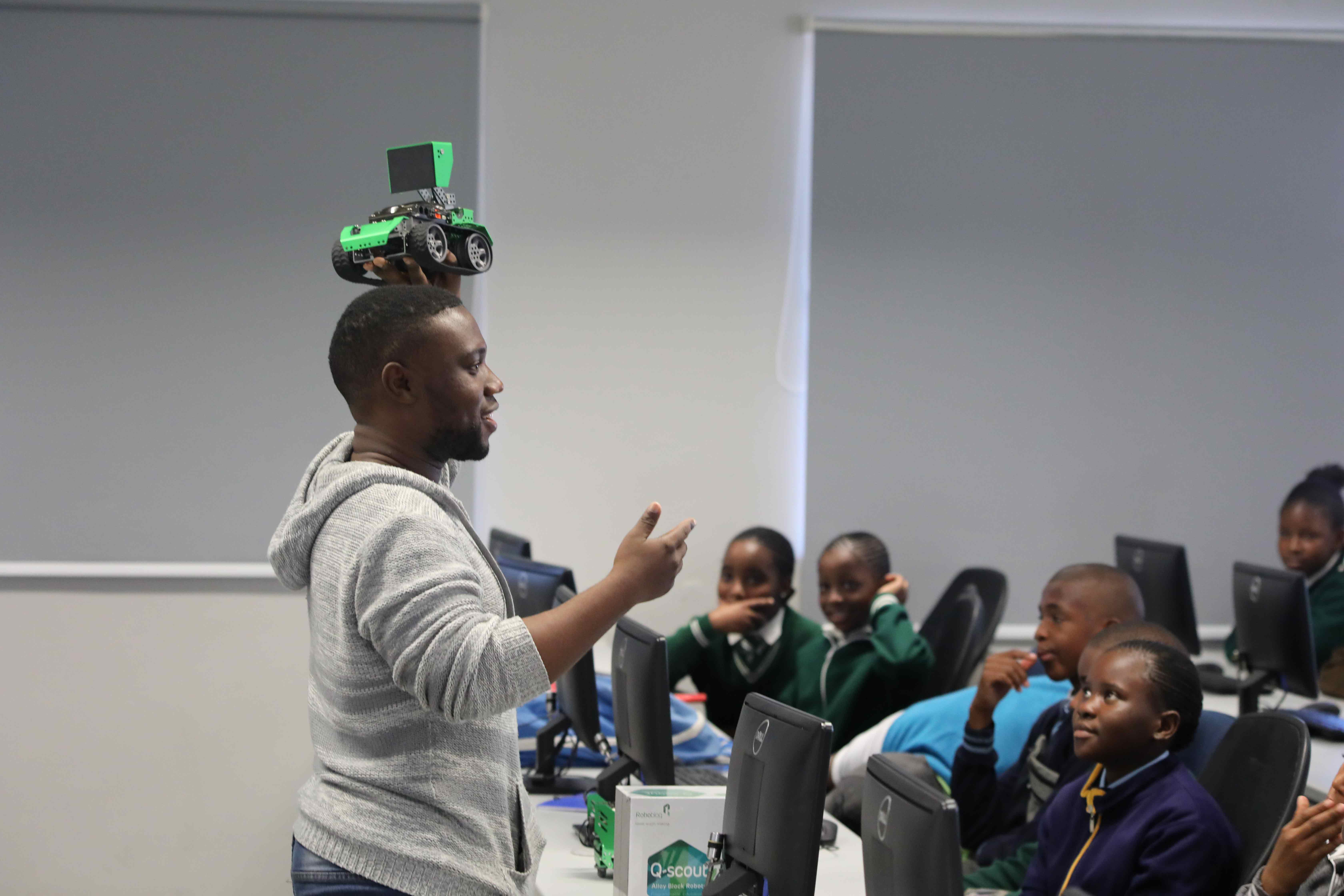Numbers of students enrolling for STEM subjects dwindling
GOSEGO MOTSUMI
In their continued efforts to attract more learners to pursue Science, Technology, Engineering and Mathematics (STEM) related subjects, the Botswana International University of Science and Technology (BIUST) last week hosted their 5th annual STEM festival and the 2nd Research and Innovation Symposium (RAIS) at the university campus in Palapye. The Director of Pre-University Academic Services at the university, Dr Haniso Motlhabane revealed that on average only 2000 out of 40 000 Botswana General Certificate Examination Leavers (BGCSE) enroll in STEM related courses, which is a low intake for STEM related subjects. The STEM festival sought to culminate interest in STEM education, which Motlhabane said is crucial in driving Botswana towards Knowledge based economy.
“This event is dedicated to celebrating STEM as a solution to everyday life. On the same breath we highlight research and innovation’s uniqueness and in depth inquiry into issues that require solutions to challenges facing humanity in the 4th Industrial revolution,” said vice chancellor Of BIUST Professor, Otlogetswe Totolo.
The joint STEM Festival and RAIS brought together international experts in STEM research and innovation fields as well as several teachers and 120 pre university students under one roof to benchmark from new RAIS modalities such as inquiry based learning towards problem solving. Held under the theme “STEM driven economy; transforming research into profitable products and services” the festival’s theme came at a time when Botswana is shifting focus from a resource to a knowledge based economy.
“The United Nations Educational, Scientific and Cultural Organisation (UNESCO) emphasize that member states should invest in Science, technology and innovation as a precursor to economic development and social progress. I am therefore pleased to inform you that Government has stepped up the challenge and is prioritizing investment in STEM subjects through BIUST,” said assistant minister of Tertiary Education Research Science and Technology, Moiseraele Goya.
With regard to research and development, the assistant minister said the revised National Policy on Research, Science, Technology and innovation (RSTI) of 2011 intends to create supportive environment for research and development and to impact economic growth by creating a robust national system of innovation. The policy also intends to create an increased investment in research and development activities to at least 2% of GDP from both government and the private sector.
Says Goya, “Currently government’s contribution to research and development stood at 0.07% of the GDP in 2016/17 financial year and 0.09% in the 2017/18 financial year. I therefore urge stakeholders to contribute to the research and development funding. Transforming research into profitable products and services can strengthen sustained progress towards improved living conditions. Research findings should not remain the hands of a few academics but should be ploughed back into the economy through sustainable business models.”
As we transcend into the Fourth Industrial Revolution, research is said to be a necessity because its findings lead to new inventions and technologies. In this era, companies are prepared to make significant investments on research in order to develop new solutions.




